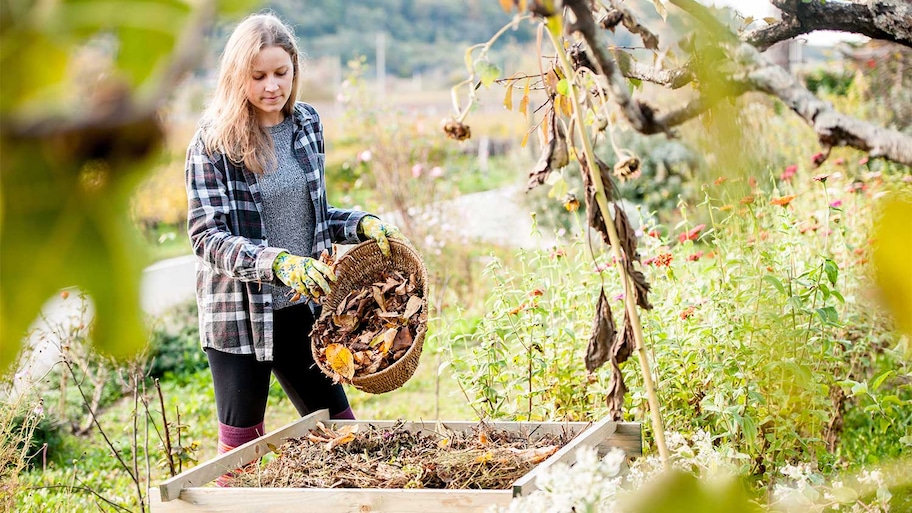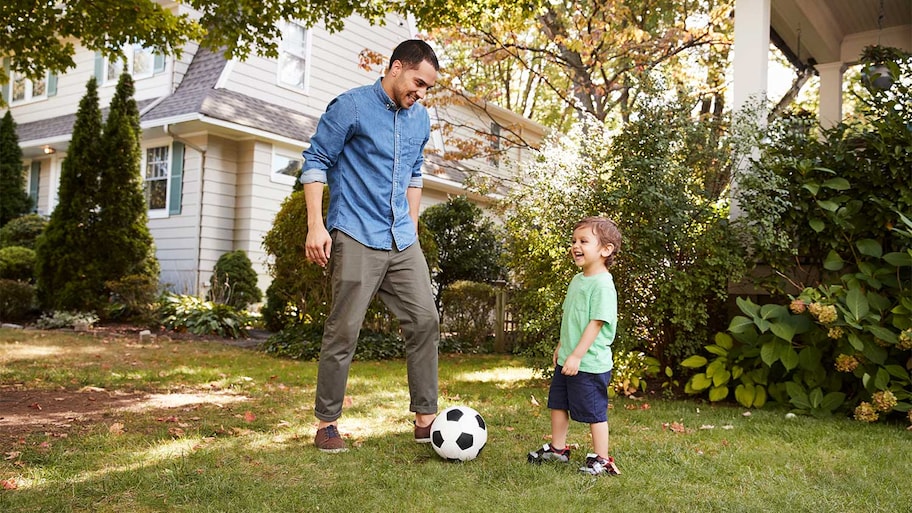Highlights
Composting your yard waste improves soil and plant quality in your yard.
If everyone recycled yard waste, we could remove 35 billion pounds of garbage per year.
Check your local recycling company’s policies before you recycle yard waste with them.
Know what to add and what to avoid in the green recycling bin.
Consider composting qualifying yard waste to limit how much goes to the recycling bin.
That lawn comes at a cost—from spending hours sweating in the itchy grass and bagging it to lugging yard waste across your yard to the curb, by the time your yard is in tip-top shape, the amount of waste you’ve collected can be staggering. Thankfully, recycling and reducing our yard waste doesn’t have to be difficult. Here’s how you can reduce your yard waste through recycling and composting.
Recycling Yard Waste
If you have a yard at home, recycling yard waste is a must. You can do much of this yourself, or you can hire a recycling company that recycles branches and leaves instead of just throwing them away.
Why Is It Important to Recycle or Compost Yard Waste?
Understanding the benefits of recycling yard waste makes it clear why it’s so important. Recycling yard waste is vital because of the positive effects recycling has on the environment. Here’s how recycling yard waste is important for the planet:
When composting recycled yard waste, aerobic bacteria (bacteria that require oxygen for survival) work with other microorganisms to break down the yard waste into components that provide key nutrients to the soil, like nitrogen, phosphorous, carbon, potassium, zinc, and others that help plants thrive.
Composted yard waste also helps conserve water through better moisture retention.
If taken to a landfill, anaerobic bacteria (which do not need oxygen to survive) break down the yard waste and produce methane, which is a greenhouse gas 25 times stronger than carbon dioxide.
Methane is the second-most abundantly produced greenhouse gas in the United States, and landfills are the third-highest methane producers in the country after fossil fuel-based power plants and agriculture.
The EPA states that if U.S. citizens recycled all of their yard waste, we would keep more than 35 million pounds of garbage out of landfills each year, dramatically cutting down on the number of greenhouse gasses produced on an annual basis.
How to Recycle Yard Waste
You can recycle yard waste in a few ways: with a yard cleanup service, the green bin, and composting. Let’s look at each option to help you decide which is best for your lifestyle.
Yard Cleanup Services
Some yard cleanup services near you will have programs to recycle the yard waste they collect to keep it out of landfills. Many cities and towns now include yard recycling services in their garbage collection services, too. Check with your local municipalities to see if they offer yard waste recycling as a component of their curbside garbage collection.
If your city or town does not offer curbside yard waste recycling, then you can hire a private company or take it to a local recycling center. Even if your city does not have a regular recycling program, you can likely dispose of Christmas tree waste through your curbside trash pickup program.
Check Company Policies
Whichever yard waste recycling company you choose, ask what yard debris and waste are accepted. Some rocks and yard debris can cause injury, so check the policies and yard waste before loading your waste for drop-off and recycling.
Most recycling services will tell you not to include rocks. Recycling services also commonly limit the sizes of branches they can recycle. Many communities and services ask you to put your yard waste into brown paper bags for collection, and while some of these services provide or sell these bags, others ask you to purchase them at a local garden retail center.
When to Choose a Yard Recycling Company
Even if you recycle your yard waste at home, there are things that you still might want to send to the community collection or to a yard waste service. Weeds, for example, should be recycled via a community recycling program, since most home composting systems do not achieve temperatures high enough to kill seeds from invasive plants.
Speaking of invasive plants: you should place invasive species, harmful plants such as poison ivy, and diseased plants in the regular trash that goes to the landfill so that you don’t spread problems in your yard by recycling such things at home.
Green Bin Waste: The Dos and Don’ts
Putting the wrong items in your green bin can create complications for the recycling industry. In fact, if you put even a single contaminated item in the bin, the entire content of that bin has to be thrown away entirely, ruining all the time and effort you put into sorting it!
So, follow these best practices for green waste to keep this from happening.
Do Put These in the Green Bin
Food waste
Bones
Coffee grinds
Smaller branches
Ivy
Grass clippings (though if you leave these on the lawn, it is OK)
Flowers
Leaves
Shredded paper
Untreated wood
Weeds
Don’t Put These in the Green Bin
When it comes to recycling your yard waste, not everything may go in the yard waste recycling container your garbage service picks up. Only clean, green materials can be processed and turned into mulch. That means you should not include the following items:
Soil
Old planter pots
Animal feces
Plastic bags or pots
Poison oak
Rocks
Treated wood
Compost Yard Waste at Home

Dedicated home landscapers and gardeners, as well as those who don’t have a yard recycling option in their local community, may want to consider composting yard waste at home. This allows you to keep the nutrient-rich compost for your own plants.
Composting Basics
To make compost from your yard waste, your compost pile will need three basic categories of ingredients:
Greens: These are nitrogen-rich ingredients. Greens include such things as grass clippings, fruit and vegetable scraps, coffee grounds and filters, eggshells, houseplants, green leaves, and tea bags.
Browns: These are carbon-rich ingredients. Browns include such things as dead twigs, branches, sawdust, wood chips, cotton and wool rags, lint from your dryer, fireplace ash, cardboard, fur, hair, newspaper, and other paper products.
Water: Too much water or too little water, and your compost pile will not work properly.
For best results, your compost pile should have an equal mix of browns and greens. Layer the browns and greens, and make sure you alternate sizes of items as well. Periodically turn the pile to accelerate the process. Note that if you do not hire a leaf removal service near you, leaves can be used as greens until they turn brown and dry out.
Shred or chop up large pieces such as tree branches before including them in your pile, and if you get a lot of rain, cover your compost pile with a tarp. Your pile needs moisture, but it should not get soaked regularly. Also, turn the mixture in your pile every couple of weeks to keep it well distributed and composting evenly.
What Not to Compost
When you compost, make sure not to include pet waste, diseased plants, insect-ridden plants, oils or fats, coal or charcoal ash, meat scraps or bones, yard clippings treated by pesticides, black walnut tree flowers or twigs, dairy products, or lard. These things can attract pests or add harmful bacteria or chemicals to your compost pile.
Compost Bin Options
You can either keep your compost in a contained bin or an open pile. Commercially available compost bins can keep your compost in one place, but you can also build a compost bin yourself out of lumber.
Some containers available for purchase include cylinders that turn via hand crank. Another compost option is a vermicompost bin, a compact bin that uses worms to quickly make compost out of your food and yard scraps.

 - Allie Ogletree.jpeg?impolicy=thumbnail)



